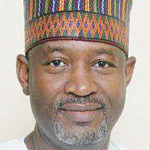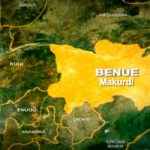US enemy and Shiite cleric, al-Sadr, wins Iraqi election

Moktada al-Sadr, a firebrand militia leader whose forces once battled American troops in Iraq and were implicated in widespread atrocities against civilians, has emerged as the surprise winner in the Iraqi national elections, according to Iraqi election officials.
After American forces withdrew from Iraq in 2011, Mr. Sadr remained vocally anti-American, though he has also been strongly critical of Iran, the other foreign power with widespread influence here.
The New York Times predicts that the victory of Mr. Sadr’s political coalition could complicate the American strategy in Iraq. The American military has been training, sharing intelligence and planning missions with former militias in the country, gambling that their military partnership can keep the Islamic State from making a comeback here.
Mr. Sadr has been highly critical of American airstrikes in the country against the Islamic State, though he has said little recently about his willingness to allow American troops to remain on Iraqi soil.
American officials are now uncertain — though not yet worried — about what the position of Iraq’s future government may be on the issue.
Some of Mr. Sadr’s political allies, even those who fought against American soldiers in the past, want the United States to stay and help shore up the country. His closest rivals in the election also support the Americans staying. And even Mr. Sadr’s representatives have said that he would abide by agreements between the United States and Iraq on training Iraqi security forces.
Mr. Sadr once led the Iraqi Shiite militia known as the Mahdi Army, which fought with American forces after the 2003 invasion that toppled Saddam Hussein and the Sunni-led minority in power then. The Mahdi Army was blamed for death squads that committed reprisals on Sunnis during the country’s worst sectarian convulsions in 2006 and 2007.
Early in the American-led invasion, President George W. Bush called Mr. Sadr an enemy and even briefly considered the idea of having the American military capture or kill him. “We can’t allow one man to change the course of the country,” Mr. Bush said in a video teleconference.
Mr. Sadr, a scion of a Shiite clerical family, has spent years refashioning his image. He now offers himself as a populist outsider intent on fighting corruption, and he has capitalized on the grievances shared by many Iraqis over the systematic graft in their country.








